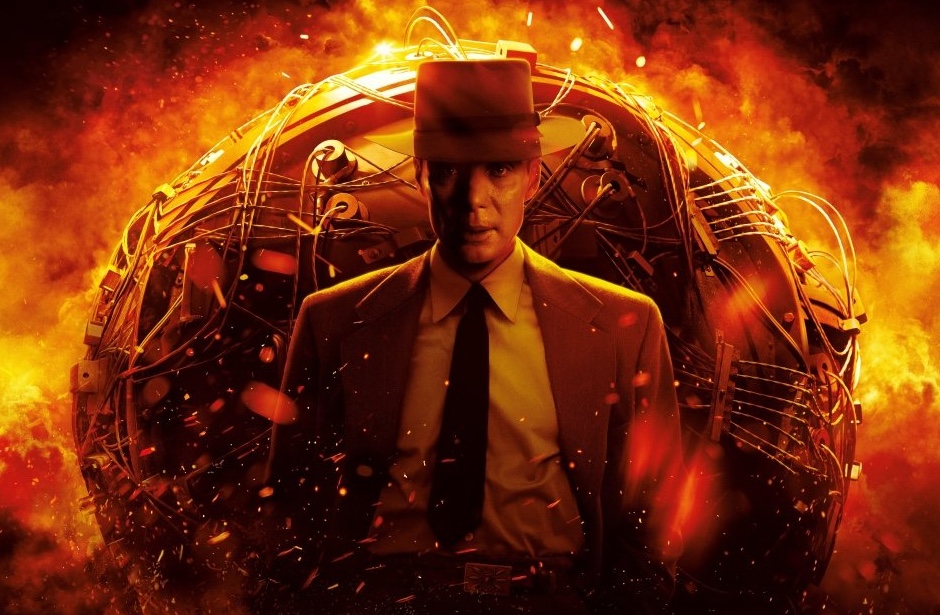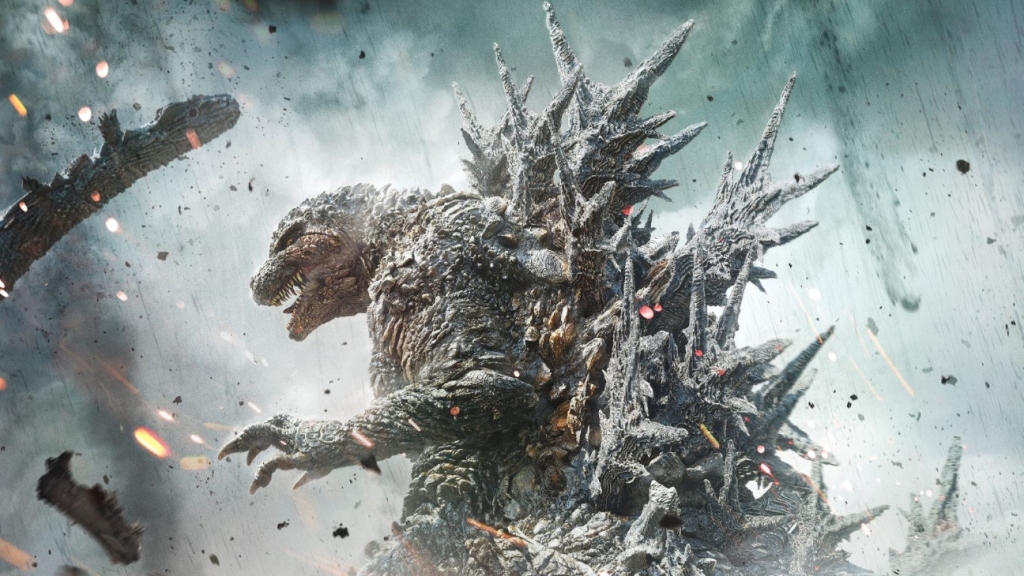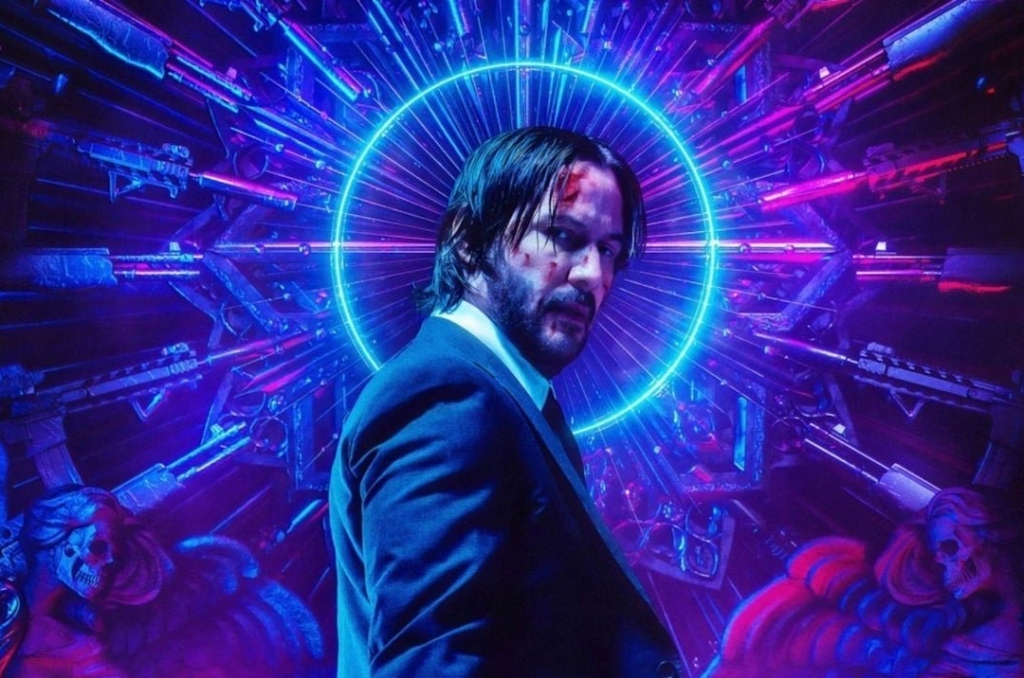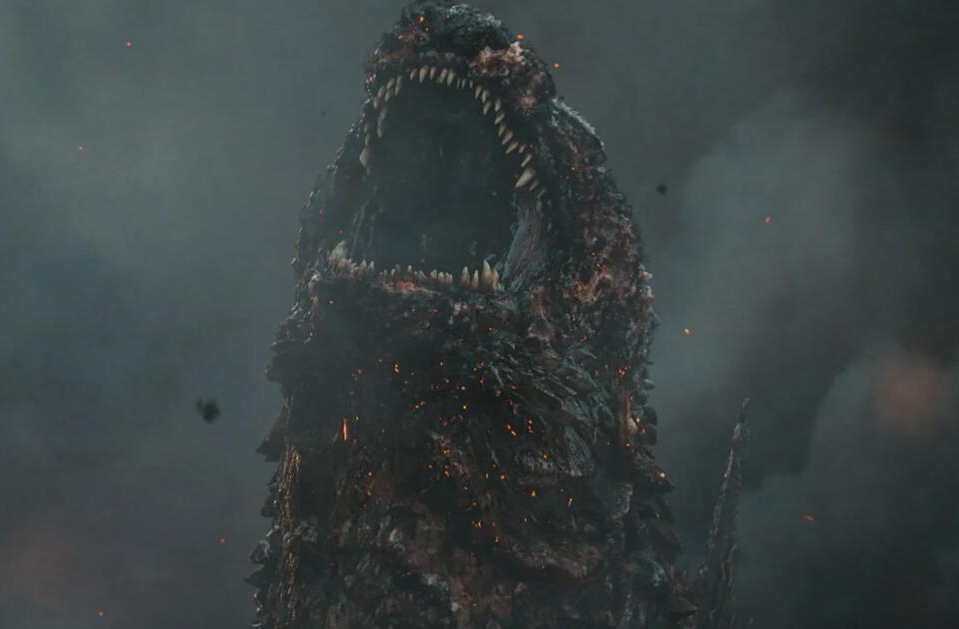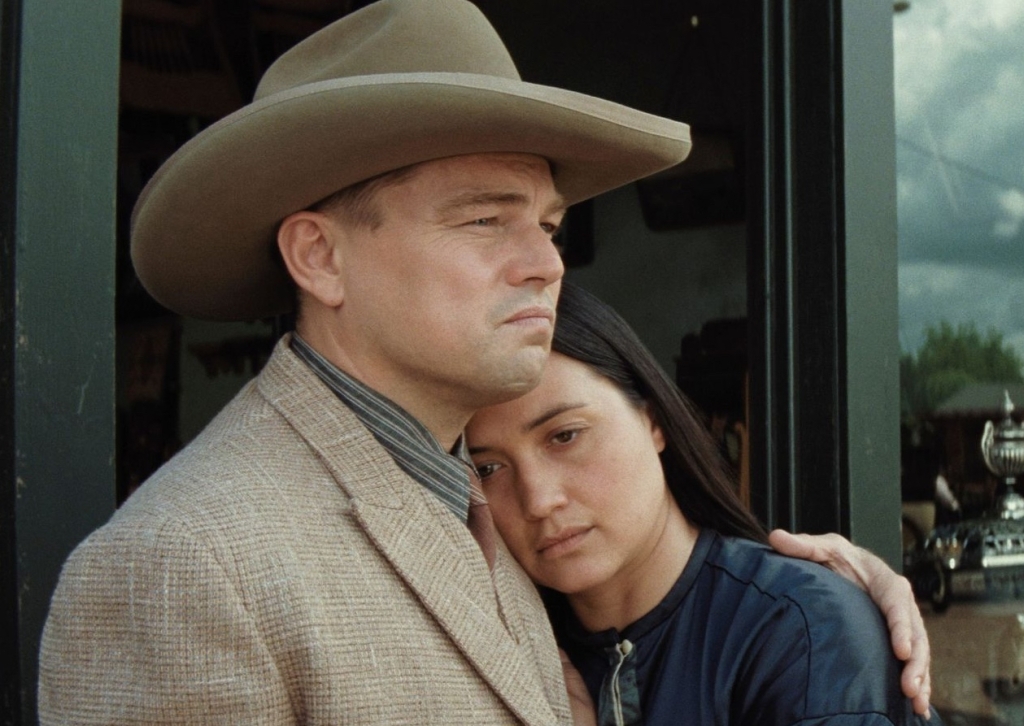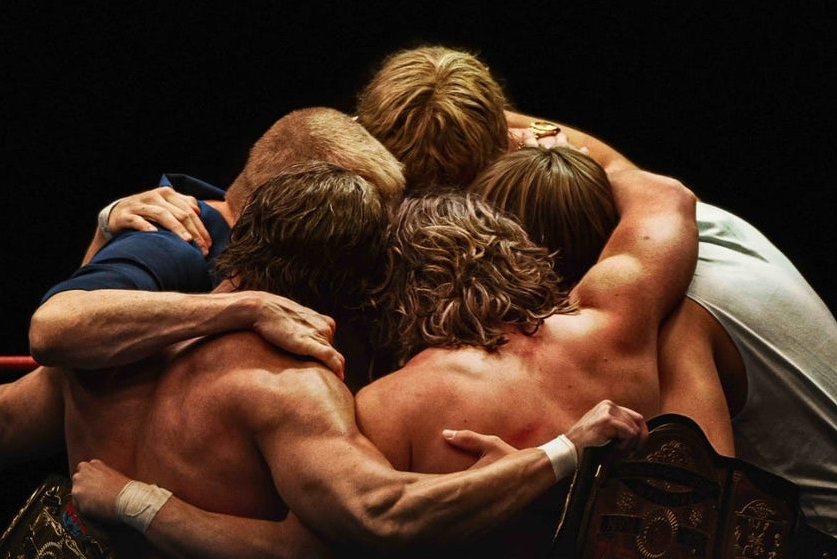It’s not usual that I’m happy with how the Academy Awards play out. This year, I’m happy with the Academy Awards for a number of reasons. One: Jimmy Kimmel was great as the Oscars host, as he always is. With his first year of hosting being the same year as the infamous Moonlight-La La Land Best Picture mixup in 2017, I’m sure every year after that seemed like a cakewalk for the late-night talk show host. He was just as charismatic and clever as he’s always been, and he did a great job making sure the show stayed fresh and kept up its momentum — even when he was facing scathing remarks from twice-impeached charlatan Donald Trump on “Truth” Social. My favorite rebuttal from Kimmel: “Isn’t it past your jail time?”
Two: The bits were actually funny this year and didn’t overstay their welcome. One of my favorite moments was when Ryan Gosling and Emily Blunt were ribbing each other for their “Barbenheimer” rivalry, with Ryan pointing out Barbie dominating the box office while Emily observed all the honors Oppenheimer racked up this awards season. John Mulvaney hilariously ribbed Madame Web during his presentation for Best Sound, quoting the infamous “He was in the Amazon with my mom” line. But my favorite bit was when John Cena “streaked” across the stage to present the Best Costume Design category with only the envelope covering his Magic Johnson. Hey, at least you can’t say he didn’t wear his best suit (just as long as birthday suits count).
And lastly, the winners were largely justified this year. There was no obviously outrageous moment like Jamie Lee Curtis winning Best Supporting Actress, or Denis Villeneuve not being nominated for Dune, or Chadwick Boseman losing Best Actor for Ma Rainey’s Black Bottom. Sure there were a few snubs here or there, but for the most part, I can see why most of the winners won this year. It’s very rare that the Academy is on the mark this much. And I’m going to savor every minute of it, because I already know this euphoria will be very short-lived.
Even my predictions went pretty well this year. As per usual, I didn’t get every category right this year, with the most obvious misses coming from those accursed short categories. But before we get to that, let’s start with…
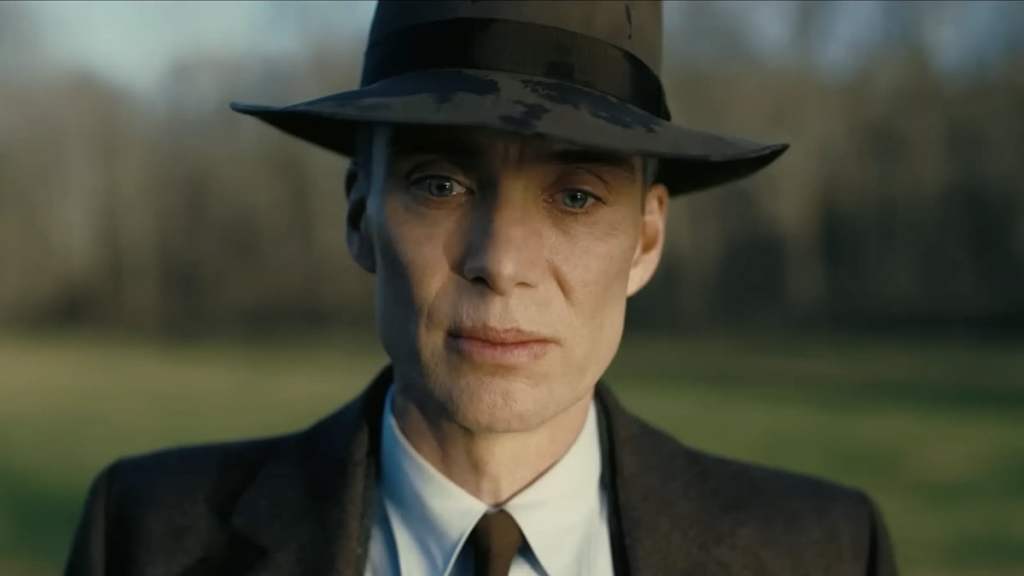
Best Picture: Oppenheimer won the Academy Awards’ most coveted honor of the night, as it deserved to. Not only is it a compelling character drama taking a deep dive into the psyche of one of the most complex men in American history, but it is simultaneously also a cautionary tale on nuclear proliferation and what Oppenheimer’s achievements may mean for the future of the human race. Given the fact that it swept the SAG Awards, the PGAs, the DGAs and every other awards ceremony under the sun, I think it was a foregone conclusion that Best Picture was Oppenheimer’s to lose.
Still, I don’t want to minimize Christoper Nolan’s or Emma Thomas’ achievements. Oppenheimer is not only the best film from 2023, but one of the finest Best Picture winners to emerge from the past several years. I’m glad the Academy got this category right and gave it to Oppenheimer as it justly deserved. Now if only it could denuclearize the rest of the world.
Best Director: Just as he had won Best Picture, so too had Christopher Nolan won Best Director for Oppenheimer. Again, I don’t think there’s much more that needs to be said here other than he obviously deserved it. Not only was his work on Oppenheimer the very best out of the entire year, but he’s also been largely snubbed by the Academy for pretty much his entire career. The first time he was nominated was in 2018 for Dunkirk, and considering he’s mounted even more significant cinematic achievements with the likes of Memento, The Prestige, The Dark Knight, Inception, and Interstellar, it’s kind of stupid that Oppenheimer marks only his second nomination — or his first win, for that matter.
Regardless, he couldn’t have won for a better film, and I couldn’t have been happier when they called Christopher Nolan’s name for Best Director. His Oscar win has been very much overdue.
Best Actor: No surprise here either: Cillian Murphy’s turn as J. Robert Oppenheimer was filled with both humanity and horror, and Cillian did a masterful job bringing the Father of the Atomic Bomb to life. What makes this win even more significant is the fact that this is also Cillian’s first nomination, let alone his first win. It’s baffling to me that such a committed actor has taken this long to be recognized by the Academy, but better late than never I guess. He did a phenomenal job in the lead role of Oppenheimer and absolutely deserved to win. I couldn’t have been happier for him.
That being said, I am sad that Cillian did have to win Best Actor at the expense of Paul Giamatti, who gave an equally gifted performance as Mr. Hunham in The Holdovers. Truth be told, I wouldn’t have been mad if Giamatti did win instead of Cillian, even if I wouldn’t necessarily have agreed with it. But let’s at least be grateful that one noteworthy performance lost to an equally talented performance. That’s the best way to lose at the Academy Awards.
Best Actress: It was a battle of the “stones” for Best Actress this year, with Killers Of The Flower Moon’s Lily Gladstone squaring off against Poor Things’ Emma Stone. And Emma clinched it, if ever so slightly.
Knowing that she had previously won Best Actress for the likes of La La Land in 2017, I mistakenly thought that would work to her detriment considering the fact that she’s already an Oscar winner. I obviously underestimated the weight of her BAFTA win, a mistake I desperately need to learn from going forward with the Academy Awards.
Best Supporting Actor: Again, no surprise here: Robert Downey Jr. was just as compelling as Lewis Strauss as Cillian Murphy was in Oppenheimer, so it makes sense that he also won the Oscar for Best Supporting Actor. It’s so heartwarming to see Robert Downey Jr. go from struggling with addiction abuse in the 2000s to getting clean to becoming part of one of most successful franchises in cinematic history, only to turn around with arguably one of the best performances of his career in Oppenheimer. I worried for a while that he was going to be typecast after the success of The Avengers, but Oppenheimer proves he’s still got phenomenal acting chops — you just have to give him a role that he can truly thrive in. Congratulations to Robert Downey Jr. and his incredible achievement. The only way his win could have been even better is if he ended his speech by saying “I am Iron Man.”
Best Supporting Actress: Da’Vine Joy Randolph obviously gave the best performance out of all of the supporting actress nominees in The Holdovers, so she was the clear winner by a long mile. Da’Vine’s win is one of those Oscar moments that fills me with so much hope and joy, because she is clearly not as big of a name as her fellow nominees, yet won regardless due to the merit of her performance. She didn’t win by being a nepo baby (*cough cough*, JAMIE LEE CURTIS, *cough cough*) — she won by genuinely being the best actress. I couldn’t be happier for the win and hope that the Academy will follow suit in this voting methodology going forward. Perhaps they could start by taking away Jamie Lee Curtis’ Oscar and giving it to Stephanie Hsu instead.
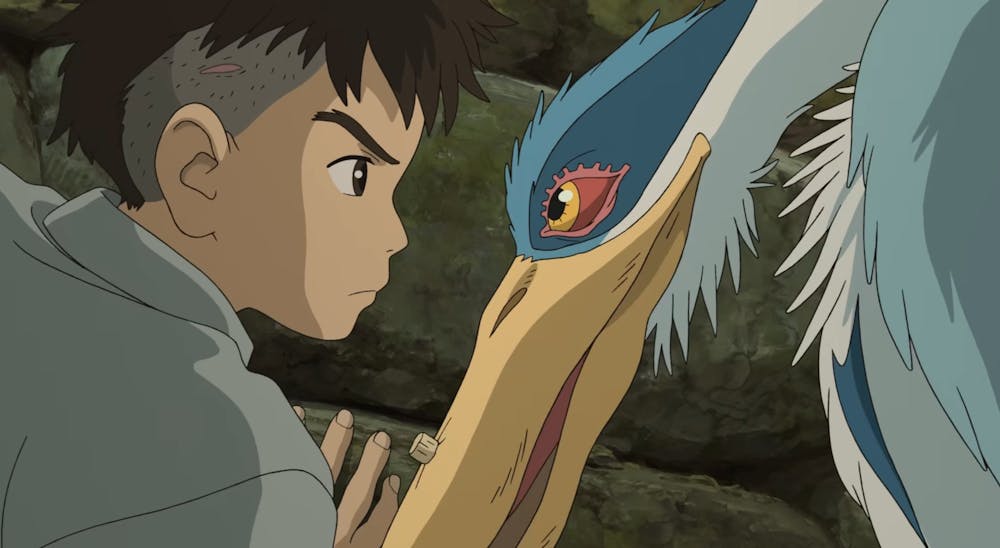
Best Animated Feature: It was a showdown between The Boy And The Heron and Across The Spider-Verse, and The Boy And The Heron ultimately won much to the dismay of web-heads. Personally, I feel Across The Spider-Verse deserved to win more, and Nimona should have been part of the conversation WAY more than it was. But in its defense, Into The Spider-Verse did already win Best Animated Feature back in 2018, while the last Oscar Hayao Miyazaki won was in 2002 for Spirited Away. The Boy And The Heron is a beautiful, tragic, and spellbinding film either way. If Spider-Verse or Nimona wasn’t going to win it, I’m glad it went to The Boy And The Heron.
No, if we really want to talk about Across The Spider-Verse snubs, we should be looking at other categories it wasn’t nominated in, including Best Original Score, Best Original Song, and Best Visual Effects. Heck, I would have even caved for a Best Picture nomination. Regardless, Beyond The Spider-Verse is still coming out in the next few years, so Spidey will have another shot at the Oscars either way. The Academy better not mess up its mulligan, otherwise Marvel fans will have legitimate reasons to be angry next time.
Best Documentary Feature: 20 Days In Mariupol rightfully won Best Documentary, marking not only the third Academy Award-winner I’ve interviewed after Aaron Sorkin and Alejandro Gonzalez Inarritu, but also the first Ukrainian to win an Oscar (how???). While I’m happy that 20 Days In Mariupol won the Oscar, there is a twinge of sadness attached to it knowing that it came at a cost of over 20,000 Ukrainian lives. I choked up at the moment when director Mstyslav Chernov said he wished this film never needed to be made, and similarly, I wish that I never needed to interview him.
Regardless, Mystyslav set out to make this film as a monument to the lives lost in Ukraine. He more than succeeded in making his monument, and as far as I’m concerned, that’s an accomplishment greater than any Academy Award could ever be.
Best International Feature: I’ve said it before, and I’ll say it again: if a Foreign-language film was nominated for Best Picture, it’s a lock for the Best International Feature Oscar. That made The Zone Of Interest winning a foregone conclusion. I just wish I could have seen it prior to Oscar night. It doesn’t help that it wasn’t playing anywhere near me. Here’s a film whose “limited” release was so limited that they should have just labeled it “Eh, we guess it was released.”
Best Original Screenplay: Anatomy Of A Fall won this year’s Best Original Screenplay Oscar as it rightfully should have. I saw the film months ago, and it’s still at the forefront of my mind with its spellbinding and dizzying narrative that masterfully teeters you on the edge of your seat. Did Sandra kill her husband or did she not? All these months later, I still don’t have an answer, and I don’t know if I want one.
Best Adapted Screenplay: Cord Jefferson’s witty and amusing adaptation of Percival Everett’s “Erasure” was as clever as it was insightful in American Fiction, so naturally it made it a perfect fit for this year’s Best Adapted Screenplay Oscar. Personally, I still wish it could have gone to Christopher Nolan for Oppenheimer, but considering how much it cleaned up in the rest of the ceremony this year, I’m okay with giving this one to American Fiction. Most would probably argue that it deserved it more anyway.
Best Cinematography: I remember back in 2014 when Hoyte van Hoytema took over for longtime collaborator Wally Phister when shooting for Christopher Nolan’s Interstellar. Years later, he continues to prove he’s one of the most creative cinematographers working in Hollywood today, with some of his most notable projects including Spectre, Dunkirk, Ad Astra, Tenet, and Nope. Oppenheimer demonstrates some of his finest work to date, so of course he deserved to win. I still don’t know how he pulled off those quantum physics sequences without any use of CGI. If they ever produce a documentary about the filming of Oppenheimer, I’ll be the first one to watch it. Mark my words.
Best Film Editing: From Frances Ha to Black Panther: Wakanda Forever, Jennifer Lame’s editing prowess has taken her all over Hollywood, which makes it especially baffling how Oppenheimer marks only her first nomination. Whatever. Oppenheimer’s film editing is the very best out of the year, and Jennifer Lame deserved to win regardless of whatever snubbing she experienced beforehand. Guess she and Christopher Nolan have that in common.
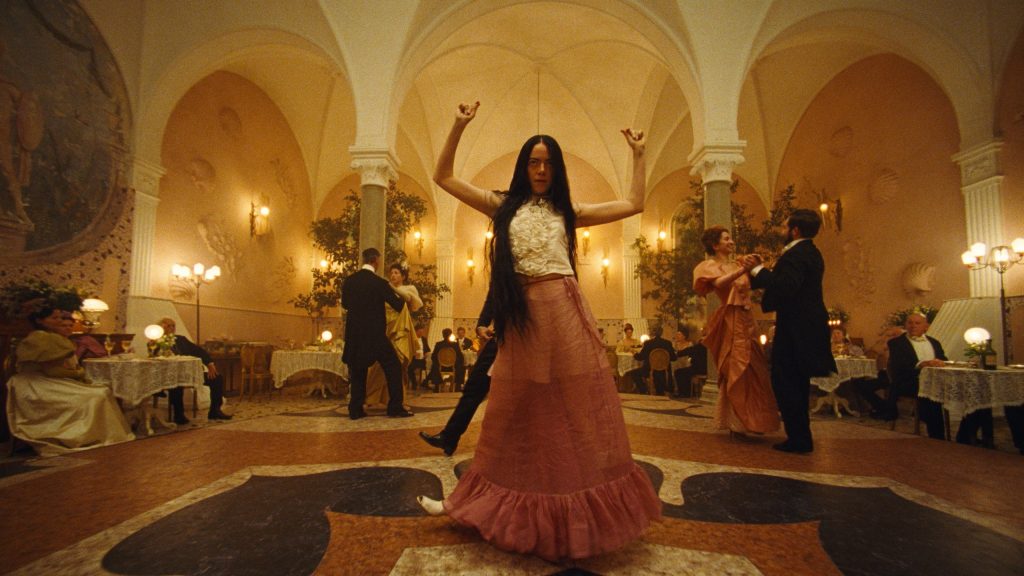
Best Production Design: It was clear from the trailers that Poor Things had some of the most striking set designs out of the entire year. As gorgeous as Barbieland looked, it lacked the dreamy and ethereal aesthetic that Poor Things nailed so effectively. It was clear from the outset that Poor Things was going to win Best Production Design. Nothing controversial to report here.
Best Costume Design: This one I got wrong because I vastly overestimated the Academy’s affection for Barbie. At first glance, Barbie seemed like the easy frontrunner, but Poor Things’ costumes were just as distinct, and unlike Barbie, didn’t have a template to base its wardrobe around. You won’t find any of Bella Baxter’s or Duncan Wedderburn’s clothes in any play sets or doll boxes. You will, however, find any of Barbie or Ken’s costumes in any toy aisle you happen to stroll past. Failing to observe its originality was perhaps my greatest oversight in making my Best Costume Design prediction this year.
Best Makeup & Hairstyling: While I flubbed up on predicting Best Costume Design, I did correctly predict that Poor Things would win Best Makeup over the likes of Maestro and Golda. Stitches and disfigured jawlines beat big noses and Helen Mirren erasure. I still don’t know why Oppenheimer was nominated in this category. I genuinely don’t.
Best Musical Score: If Ludwig Goransson didn’t win Best Musical Score for his eerie, ominous, and haunting compositions for Oppenheimer, then the Dolby Theatre truly deserved to be hit with a hydrogen bomb. Thankfully, the Academy picked the right winner in this category. For the record, I’m still fuming that John Williams is nominated for Dial Of Destiny over Daniel Pemberton for Across The Spider-Verse.
Best Original Song: As epic as Barbie’s musical number for “I’m Just Ken” was, it’s clear that Billie Eilish was going to win for her beautiful yet heartbreaking single “What Was I Made For?” Long before the nominees were even announced, the impact of her song was at the forefront of my mind for its emotion, its melancholy piano melody, and its somber and bittersweet tone. It’s a masterclass in excellent songwriting, and the Academy got it right when they picked her as the Best Original Song winner.
What’s most surprising about this category isn’t the fact that she won — it’s the fact that it’s the only Oscar Barbie won, period. Look at the list of winners. Barbie did not win in a single other category besides original song. Not production design. Not costume design. Not writing. Certainly not for Best Picture. The only Oscar it won was for its music.
In its defense, “What Was I Made For?” is arguably the most influential aspect of Barbie. I loved the song long before I even watched the movie, and the best part is you don’t even have to watch the movie to appreciate its message. It doesn’t change the fact that Barbie got absolutely shafted by the Academy this year. Many Barbie fans will be reasonably upset by the many ways it was snubbed at the Oscars this year. Personally, no snub was greater than Greta Gerwig getting robbed in the Best Director category. Oh well. At least she had fun singing “I’m Just Ken” with her cast.
Best Sound: Now here’s one of the few surprises from the night. Oppenheimer’s sweeping and striking sounds of atomic molecules crashing into each other was among the most distinct sound design of the entire year. I thought it was a lock for the Best Sound Oscar, but it turns out the Academy felt differently when The Zone Of Interest won instead.
Like I said, I haven’t seen the movie (who has?), so it’s hard for me to say whose sound design was more deserving. What I will say is that the muffled sounds of children screaming in the chemical showers in the small snippet that played during the ceremony was easily the most disturbing moment from the Academy Awards this year. The clip lasted less than 10 seconds, yet that eerie sound is the one thing I remember most from this weekend. It reminded me a lot of the sound design of Nope, where the muffled sounds of people being digested by a giant alien was one of the most haunting and disturbing sounds I had ever heard in a horror movie. In a way, The Zone Of Interest is a horror movie of its own, only it’s covering real-life horrors as opposed to fictional ones.
So while I haven’t seen enough to declare whether or not it deserved the Oscar over Oppenheimer, I can definitely see why it won. This is likely one of the first Oscar winners I’ll be catching once the title hits streaming services.

Best Visual Effects: I have mixed feelings about Godzilla Minus One winning Best Visual Effects, mainly due to the allegations that its VFX artists were simultaneously overworked and underpaid. What gave me hope was seeing that director Takashi Yamazaki worked alongside his fellow artists as a VFX supervisor, meaning that whatever arduous hours his team was working, he was most likely working right alongside them. Does that make their working circumstances any less problematic? Not really, but at least the director is in the trenches with them. If your crew is drowning in misery, at least have everyone be equally miserable together. That’s all I really ask for.
Also, Takashi and his crew looked really excited to be at the Academy Awards. For crying out loud, he brought a gold Godzilla statue with him, and his team all had their own Godzilla figurines with them. Regardless of whatever their working conditions were, you can tell that they were passionate fans who poured their hearts into this atomic-sized monster epic. As long as they’re happy, I’m happy. And for whatever it’s worth, Godzilla Minus One did have the best visual effects out of the year regardless.
And finally, we come down to those blasted short categories. The only one I got right this year was Wes Anderson winning Best Live Action Short for The Wonderful Story Of Henry Sugar. The rest were all a bust. Thankfully, Issa Rae and Ramy Youssef at least had the good sense to keep the presentation as blissfully short as their nominees.
That brings my total score this year to 18 out of 23 categories guessed correctly. Not a bad year for me, although I did lose in my own family’s pool. Oh well. At least I got to go to bed before 11 for a change.
– David Dunn






